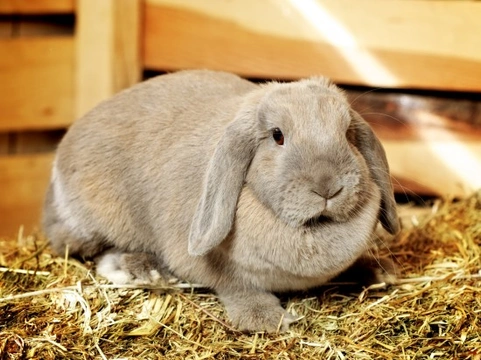
Head Tilt in Lop-Eared Rabbits: Causes, Treatment & Care
If your beloved lop-eared rabbit has started showing signs of head tilt, medically known as torticollis or wry neck, it can be deeply distressing. This condition often signals a problem with the vestibular system that controls balance and coordination. Understanding the causes and treatment options is vital to support your rabbit’s health and comfort. Most importantly, if you notice a head tilt, seek veterinary care immediately to ensure the best outcome for your pet.
Causes of Head Tilt in Lop-Eared Rabbits
Lop-eared rabbits are particularly susceptible to head tilt due to the structure of their ears, which can predispose them to infections and other ear problems affecting the vestibular system. Common causes include:
- Inner and Middle Ear Infections (Otitis Media/Interna): These are the most frequent causes of head tilt. Bacterial infections, often stemming from respiratory issues, can travel to the middle or inner ear through the Eustachian tube. The infection inflames and damages the vestibular apparatus, causing imbalance, tilt, and involuntary eye movements known as nystagmus. Regularly check your rabbit’s ears for signs of infection, such as discharge or smell, since outer ear infections can spread inward if left untreated.
- Encephalitozoonosis (E. cuniculi Infection): This microscopic parasite infects the brain and nervous system, causing inflammation. A head tilt caused by E. cuniculi may be accompanied by pre-symptoms like dragging feet or disorientation. Although treatment with anti-parasitic medications such as fenbendazole and supportive care can manage symptoms, full recovery is not always possible. The parasite can cause intermittent or lifelong vestibular symptoms.
- Stroke or Neurological Injury: Similar to humans, rabbits can suffer strokes that impact balance and coordination, resulting in a head tilt. Symptoms may come on suddenly and usually improve over months, but intensive care, including hand feeding and hydration, is necessary during recovery.
- Other Causes: Less commonly, ear mites, yeast infections, ear growths, or trauma can cause head tilt. Tumours or other neurological diseases are rarer but serious considerations that require veterinary investigation.
Recognising Symptoms
The main signs of head tilt include your rabbit holding its head tilted to one side, imbalance, falling over, spinning, and nystagmus. In severe cases, the inability to close one eye leads to dryness and requires daily eye drops. Difficulty eating or drinking may occur, especially if the rabbit is dizzy or disoriented.
Veterinary Diagnosis and Treatment
Head tilt is an emergency that requires prompt veterinary assessment. Diagnosis typically includes a thorough physical and neurological examination, ear inspection, blood tests for E. cuniculi, and sometimes imaging such as X-rays or CT scans to identify middle or inner ear infections or other causes.
Treatment depends on the underlying cause but often includes:
- Antibiotics: Used for bacterial ear infections, often requiring prolonged and aggressive courses. If initial antibiotics fail after four weeks, your vet will try alternative medications or may recommend surgery to drain the inner ear.
- Anti-Parasitic Drugs: Fenbendazole is commonly prescribed for E. cuniculi infections to reduce inflammation and control symptoms.
- Supportive Care: Hand feeding with syringe and subcutaneous fluids are often necessary if your rabbit stops eating or drinking. Managing eye moisture with lubricating drops prevents corneal damage.
- Steroids and Surgery: In select cases, steroids reduce inflammation, and surgical intervention may be required for persistent ear disease.
Home Care and Practical Support
Caring for a rabbit with head tilt is challenging but rewarding. Gentle handling and patience are vital as your rabbit may be anxious or disoriented. To help your bunny:
- Place rolled towels or blankets around the enclosure to prevent injury from falls.
- Line the cage with absorbent materials to keep your rabbit clean and warm, avoiding chilling from urine contamination.
- Administer prescribed eye drops carefully to keep the open eye moist.
- Offer frequent, small meals through syringe feeding if the rabbit refuses to eat. Homemade blends of pellets and fresh vegetables or specialised formulas can be soothing and nutritious.
- Spend quiet, reassuring time stroking or cuddling your rabbit to reduce stress.
When Treatment Does Not Completely Resolve the Head Tilt
Sometimes the head tilt may persist despite treatment but does not compromise your rabbit’s quality of life. These rabbits can live happily with appropriate care, though vigilant monitoring is essential to detect any return of infection or additional symptoms.
In sadly some cases where infection or neurological damage is unmanageable and causes sustained pain or suffering, euthanasia may be the kindest option. This decision should only be made after thorough veterinary consultation and considering all treatment avenues. Responsible pet owners must focus on their animal’s wellbeing and quality of life when facing such difficult choices.
Additional Tips for Lop-Eared Rabbit Owners
Due to their ear anatomy, lop-eared rabbits require regular ear checks and good hygiene to prevent infections. Providing a clean environment and avoiding sudden drafts or stress can reduce the risk of ear issues. Always source rabbits from reputable breeders or trusted rescue centres to support responsible pet ownership and healthier rabbits.
For more information or to find a mini lop rabbit for sale from reputable breeders, visit trusted UK pet marketplaces.
Conclusion
Head tilt in lop-eared rabbits is a serious condition most commonly caused by inner or middle ear infections and E. cuniculi parasitic infection. Prompt veterinary diagnosis and treatment are vital for the best chances of recovery. While the condition can be distressing, with compassionate care, many rabbits manage well and live fulfilling lives. Responsible owners should maintain vigilant health checks and provide supportive home care to help their bunnies through this challenging condition.



